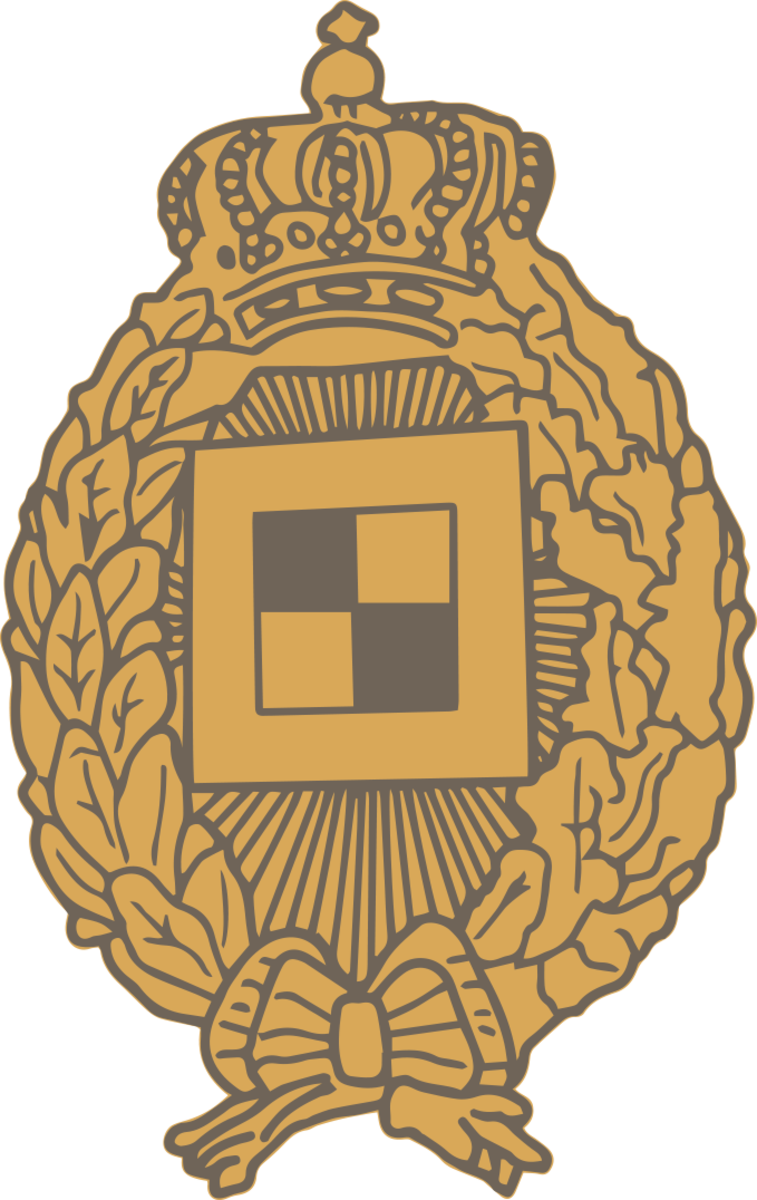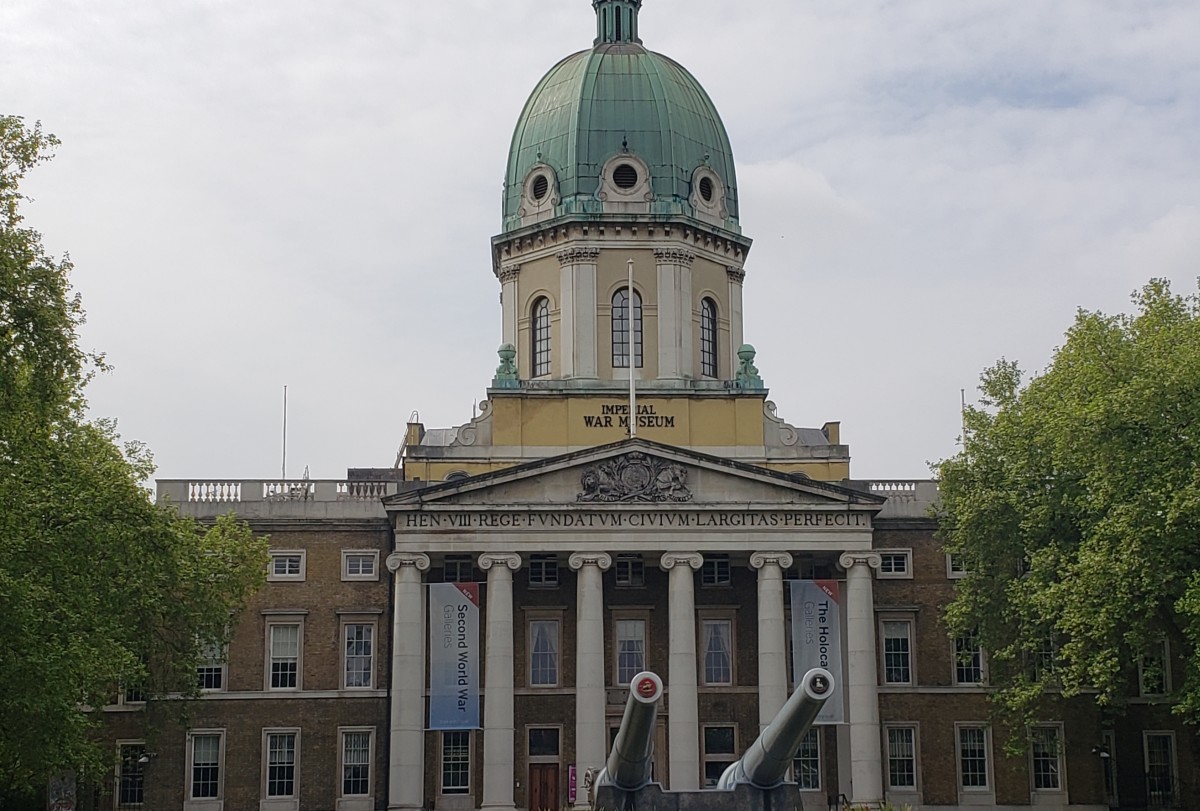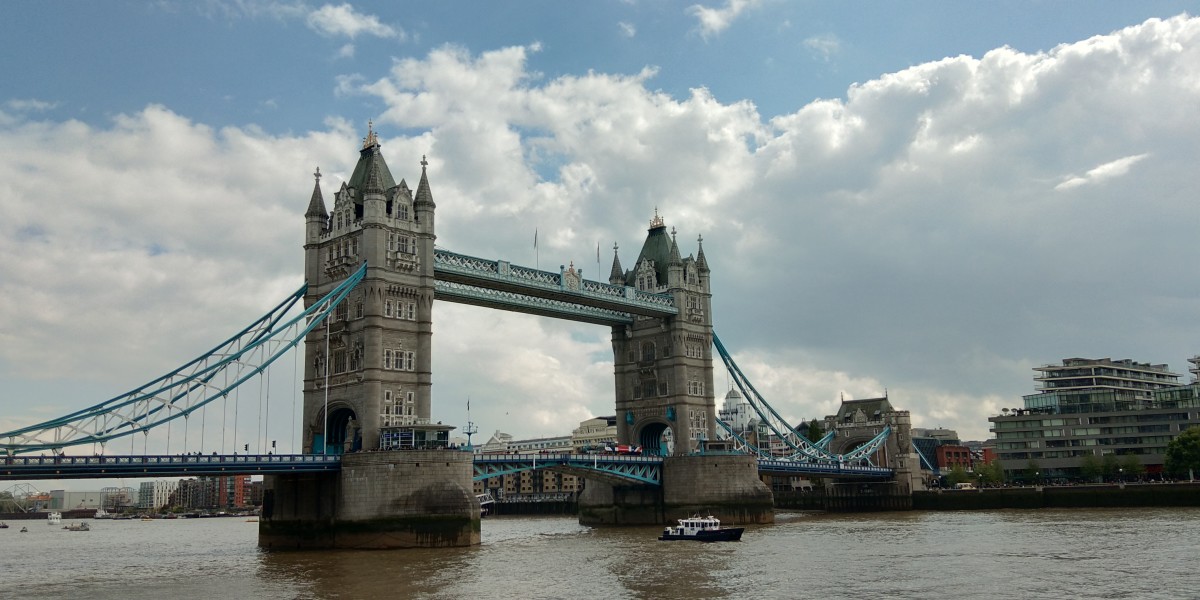- HubPages»
- Travel and Places»
- Visiting Europe»
- United Kingdom»
- England
Visiting the Edith Cavell Memorial, London, England: a legacy still too troubling to assess objectively?

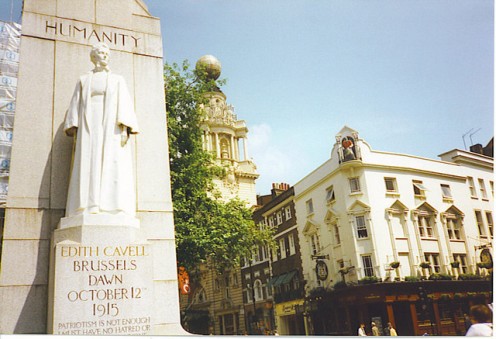
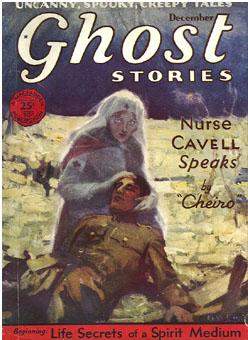

Still too complex for English Canada to weigh accurately?
Hardly three or four minutes' walk from Canada House, on London's Trafalgar Square, at St Martin's Place, between the National Gallery and the church of St Martin-in-the-Fields, stands the memorial to Nurse Edith Cavell (1865-1915). This sculpture was the work of Sir George Frampton, R.A., P.R.B.S. (1860-1928).
Who was Edith Cavell? These are some of the basic facts of her life: she was a British nurse engaged in humanitarian work in German occupied Belgium in World War One, and she was executed on October 12, 1915 by German forces in Brussels, Belgium, after it was discovered that she had been assisting British soldiers to escape captivity; these basic facts are not in doubt. However, they do not tell the whole story.
Especially during World War One, but also subsequently, the life and death of Edith Cavell, and their many-faceted, claimed, significance, have been subject to huge discussion, official and unofficial. Official discussion of her role, especially during World War One, was tantamount to war propaganda.
The German act of perfidy theory, for propaganda purposes
The official narrative ran that this undoubtedly brave woman, supplementing her humanitarian duties in German-occupied Belgium, assisted British soldiers to escape, via the neutral Netherlands, and was tragically apprehended behind German lines and executed by the supposedly cruel enemy. At this, the British Imperial authorities could bleat with empathy, apparently powerless in the face of the actions of her captors beyond their control; the statement of Lord Robert Cecil, Under-Secretary at the Foreign Office, supposedly bore this out: 'Any representation by us will do her more harm than good'.
This narrative proved to be a gift for Allied war propagandists: How could the 'unfeeling' Germans have done such a thing? a sentiment which studiously avoids the question of whether a German national, male or female, secretly helping German prisoners to escape behind the Allied lines, would have met with a benign fate. (Or put differently, Albion might not have been much less perfidious or un-tender than were Nurse Cavell's German captors.) But in war, as the adage goes, truth is the first casualty.
A more realistic summary of what British Imperial thinking may have been is probably seen in the following comment of Duff Cooper. whom Time Magazine quoted in 1936 as remarking: "Edith Cavell was a courageous woman whom the Germans were entitled to execute" (1).
In any case, English Canada, in World War One, still largely susceptible to well-crafted Imperial narratives, for its part, named a mountain for Edith Cavell: some not-so-subtle toponymic, emotional blackmail at the service of Sir Robert Borden's later conscription policy, so deeply resented in French Canada.
For years after World War One, this basic, narrative went unchallenged, made more poignant by an undoubted, cultural predisposition to idolize the feminine virtue of the clergyman's daughter from Norfolk, England, that she indeed was. Thus, also, various institutions in English Canada almost vied with each other to give this narrative prominence: the naming of schools in Belleville, Sault-Ste.-Marie, and Windsor, Ontario, in Moncton, New Brunswick, and in Vancouver, British Columbia; similarly, the naming of hospital and care facilities in Belleville, Peterborough, and Toronto, Ontario, and in Lethbridge, Alberta and in Vancouver, British Columbia.
The Secret Intelligence Service operative who went out into the humanitarian cold
Actually, more recently it has appeared that Edith Cavell was a spy for the Secret Intelligence Service. Not that British officialdom is comfortable with this, even today. In 2007, British Prime Minister Gordon Brown (2), in an adulatory piece about Edith Cavell, studiously avoided mentioning her role as a spy. But various writers — M R D Foot (3), Paul Routledge, and Nicolas Rankin — have argued with some weight that Edith Cavell was actually a wartime intelligence officer.
This role was in any case cut short when, for her Imperial spymasters, no less ruthless than their German opposite numbers, Edith Cavell had become damaged goods. Edith Cavell had a literally fatal flaw and this was that she pursued a side-line in humanitarian efforts to help soldiers find their freedom: undesirable from the perspective of intelligence integrity. In other words, her British spymasters (the gender here is deliberate) could not abide any of their spies going out into the humanitarian cold (to coin a phrase).
This also puts into rather starker perspective the statement of Lord Robert Cecil: 'Any representation by us will do her more harm than good'. (As if referring to the undesirability of saying hypothetically to the German Governor of Brussels: 'Don't be too hard on her; she's actually one of our spies'.)
After World War One, the British Imperial authorities were thus caught in their own web of propaganda. They could hardly have announced to the Empire: 'Well, actually, after all, she was a spy. By all means continue to name your schools and hospitals for Edith Cavell, but we just thought we would mention it.' Those same British, cultural sensibilities, to which Imperial war propagandists played in order to establish the perfidy narrative in relation to her death, would very probably have found an alternative story to be a bridge too far. Naming hospitals for executed humanitarian workers: yes; female spies: not, no really. At least in the early 20th century's British Empire — the territory of which was not occupied by Germany and its Austro-Hungarian allies in World War One — female spies had a vaguely exotic and unsavoury edge to their reputations. After World War One, could one imagine the Salvation Army playing hymns in memory of a British equivalent to Mata Hari or Rahab the Harlot?
Shifting narratives
So where does this leave Edith Cavell's legacy in Canada? Could Canadians conceive of names such as a 'Mata Hari Mount' in Yukon, or a 'Rahab Nursery' in Labrador? Whether or not some enterprising politician would think such appellations to be suitable today, yet after World War One, such notions would have been highly unlikely. Only a safely sanitised version of the Edith Cavell story would be satisfactory as part of an official narrative.
This brief article began by stating that the basic facts relating to the life and death of Edith Cavell do not tell the whole story. Assuming, of course, that the shifting narratives surrounding her life and death are wholly distinct from the actual story. Or will we ever truly know the whole story of the undoubtedly courageous Edith Cavell? (What do you think?)
Notes
(1) Alfred Duff Cooper, qu. in: Time , 17.2.36.
(2) 'Edith Cavell', in: Gordon Brown, Eight Portraits , London: Bloomsbury Publishing, 2007
(3), M R D Foot and J M Langley, M19: Escape and Evasion 1939-1945 , Futura, 1980.
Also worth seeing
A very brief summary of London 's extensive visitor attractions not mentioned already might include: Westminster Abbey; the Palace of Westminster; St. Paul's Cathedral; Buckingham Palace; the Tower of London with the Crown Jewels.
...
How to get there
United Airlines flies from New York Newark Airport to London Heathrow Airport, where car rental is available. Underground and train services link Heathrow Airport with Central London. Please note that some facilities may be withdrawn, without notice. You are advised to check with the airline or your travel agent for up to date information.
MJFenn is an independent travel writer based in Ontario, Canada
Other of my hubpages may also be of interest
- Visiting Canada House, London, England: splendid, Canadian hub on historic Trafalgar Square
- Visiting Newhaven, England: Poignant memories of Canadian sacrifice in WW2
- Visiting Saint-Amand-les-Eaux, France: with its long heritage of craftsmanship
- Visiting the Tyne Cot Memorial, Belgium: immensely sobering yet splendid
- Visiting Mexico City, and its Venustiano Carranza suburb and airport: remembering figures of Mexican




